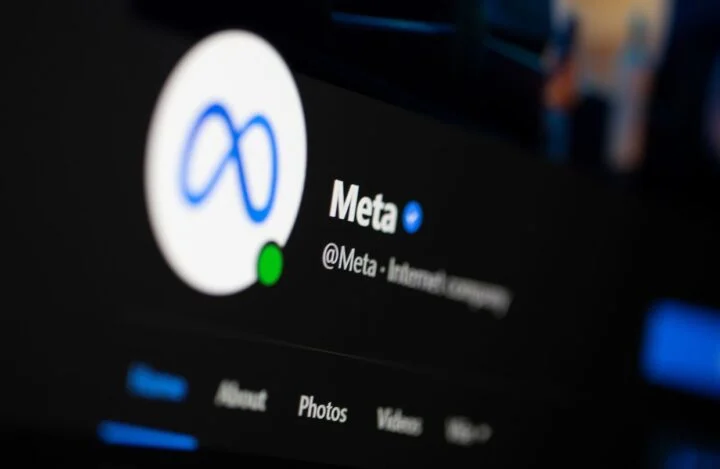Meta, the parent company of Facebook, Instagram, and WhatsApp, is facing mounting pressure in Nigeria after being hit with a series of fines totaling $280 million. The penalties, upheld this month by Nigeria’s High Court, have triggered warnings from Meta about a possible shutdown of its services in the country — a move that could disconnect tens of millions of users and spark digital and economic consequences across West Africa.
A Breakdown of the Fines
In 2023, Nigeria’s regulatory bodies took a hard stance against the tech giant. The Federal Competition and Consumer Protection Commission (FCCPC) fined Meta $220 million for alleged anti-competitive behavior. The Advertising Regulatory Council of Nigeria (ARCON) followed with a $37.5 million fine for failing to obtain approval for ads. Adding to the blow, the Nigerian Data Protection Commission (NDPC) slapped Meta with another $32.8 million over breaches of data privacy laws, especially concerning unauthorized cross-border data transfers.
The NDPC’s main argument centered on the concept of data sovereignty — the idea that Nigerian users’ data should remain within the country’s regulatory reach, rather than being exported overseas without explicit user consent.
FCCPC’s chief executive, Adamu Abdullahi, accused Meta of exploiting Nigerian consumers and using intrusive practices. He called on the company to immediately comply with Nigerian laws and halt actions that he described as market abuse.
Meta responded by claiming that Nigerian regulators have misunderstood the law and imposed unrealistic expectations. Although it appealed the decisions, the High Court sided with the regulators, requiring Meta to pay the full amount by the end of June.
Regulatory Intentions or Overreach?
Lagos-based tech lawyer Rotimi Ogunyemi believes the fines were justified, citing Meta’s inconsistent data practices across global markets. He notes that while Meta ensures high compliance with European laws, its approach in Nigeria has been far less rigorous — something regulators are now confronting.
However, Ogunyemi also warns that the heavy-handed penalties and rigid requirements could be excessive for a country still shaping its digital governance framework. Still, the case has sparked vital conversations about digital rights and sovereignty, which many in Nigeria and beyond see as overdue.
Could Meta Really Walk Away?
Meta’s legal filings suggest that it might have to shut down Facebook and Instagram in Nigeria to avoid further enforcement measures. Nigerian officials, however, dismissed this as a tactic to sway public sentiment.
The stakes are high. Facebook has over 51 million users in Nigeria, Instagram serves more than 12 million, and WhatsApp accounts exceed 50 million — making Nigeria Meta’s largest African market.
With about three-quarters of Nigerians under 24, these platforms are not only vital for social interaction but have become central to how young Nigerians earn a living. Between 2024 and 2025, the number of users employing social media for work-related activities jumped from 39.1% to 65.2%, largely driven by Nigeria’s booming creator economy and informal online businesses.
A sudden exit would be disastrous for many small enterprises, digital marketers, and freelancers who depend on Meta’s platforms for their livelihoods. Ogunyemi warns that it could also damage investor confidence in Nigeria’s tech sector, where regulatory uncertainty is already a concern.
Still, he believes a full-scale exit is unlikely. Meta’s statement, he says, appears more like strategic leverage than a final decision. Leaving Nigeria would mean losing a valuable market and weakening the company’s African footprint unless the situation worsens significantly or negotiations break down entirely.
Enforcement vs. Access
Even if Meta were to pull its services, enforcement may be limited in scope. Nigerians are no strangers to bypassing online restrictions — VPN usage surged by 250% during the Twitter ban in 2021 after the platform removed a tweet by former President Buhari.
With tools like VPNs widely accessible, completely blocking Meta’s platforms would be a logistical challenge.
Bigger Picture: Sovereignty vs. Global Power
This case represents more than just a dispute between a government and a corporation. It highlights how African nations are striving to reclaim digital sovereignty from powerful tech firms headquartered in the U.S. But doing so isn’t easy, especially given the massive economic influence of companies like Meta, which reported profits of over $134 billion in 2024 — higher than the GDPs of many African countries.
Further complicating matters is U.S. political pressure. With Donald Trump’s return to the presidency, Washington has signaled it will protect major American firms from what it sees as harmful foreign regulations. A February White House memo called for tariffs and countermeasures against countries imposing limits on U.S. tech companies.
Meta’s CEO Mark Zuckerberg echoed this stance, saying the company is committed to working with Trump to “push back on governments” targeting American firms.
A Path Toward Compromise?
Despite the tension, there may still be room for negotiation. Ogunyemi suggests Nigeria consider incentive-based policies instead of relying solely on aggressive enforcement.
This could involve creating digital partnerships where platforms like Meta commit to respecting national laws, investing in public education on digital safety, and aligning content moderation with local standards. In return, the Nigerian government could offer clearer regulatory guidelines and a collaborative environment for tech innovation.
Negotiated compliance — which favors proactive agreements over post-violation penalties — could also help balance regulation and growth, especially in an evolving tech ecosystem like Nigeria’s.
“The goal,” Ogunyemi concludes, “should be to avoid scorched-earth regulation. Nigeria must create a regulatory culture that promotes compliance while safeguarding access, opportunity, and innovation in the digital age.”

